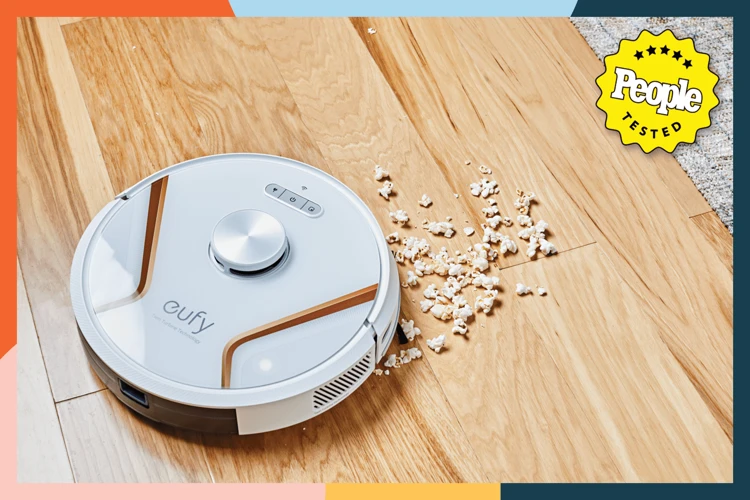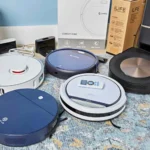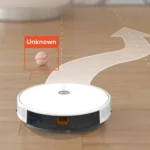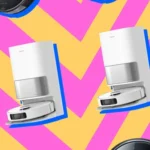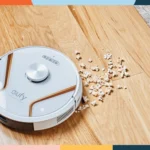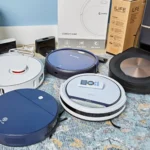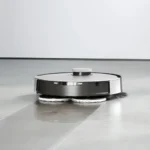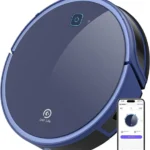Vacuum cleaners are essential tools for maintaining a clean and tidy home, but they can often be incredibly noisy. For years, homeowners have had to put up with the loud and obnoxious sound of a vacuum cleaner echoing through their homes. However, with the advent of smart vacuum cleaners, innovative noise reduction technologies have been developed to tackle this problem. But why is reducing noise important? What are the benefits of quieter vacuums? In this article, we will explore the answers to these questions and delve into the various noise reduction technologies that are now available in smart vacuum cleaners.
Why is Noise Reduction Important?
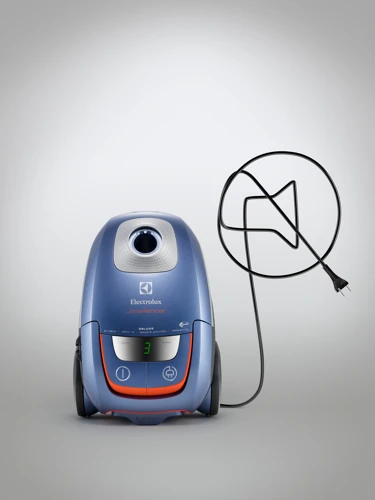
Reducing noise in household appliances has become more important than ever before. Smart vacuum cleaners have been a game changer in the cleaning industry, but the noise they produce has been a major concern for users. Innovative noise reduction technologies have been introduced in smart vacuum cleaners to address this issue.
Excessive noise in homes can cause annoyance, discomfort, and even health problems. According to the World Health Organization, noise pollution has been linked to sleep disturbance, cardiovascular diseases, and even cognitive impairment. Smart vacuum cleaners have become an essential cleaning gadget in many homes, but their noise levels can be a source of frustration for many individuals.
Quieter smart vacuum cleaners provide several benefits that go beyond just reducing the noise pollution in homes. They allow for easy cleaning without disturbing other household activities or even sleeping children. Additionally, quieter smart vacuums make cleaning less stressful and can improve the overall cleaning experience.
Noise Reduction Technologies in Smart Vacuum Cleaners have solutions for noise pollution.
One of the most effective methods used by manufacturers to reduce noise is by incorporating ultra-quiet motors in smart vacuums. These high-performance motors produce significantly lower levels of noise compared to traditional motors found in older vacuum cleaners.
Another technology used in smart vacuums is the utilization of noise-absorbing materials. These materials are designed to absorb sound waves, which significantly reduces the amount of noise produced.
Technology designed to reduce environmental noise is also being used in smart vacuum cleaners. Noise-canceling technology such as active noise control uses microphones to detect and analyze environmental sound waves. This information is subsequently used to generate a sound wave that cancels out the environmental noise.
Smart vacuums are already equipped with several sensors that assist with navigation and cleaning. Advanced sensors can detect when there is less sound in the area and automatically reduce noise levels in the vacuum. Additionally, some sensors have the capability to detect obstacles in its path and adjust its noise and suction levels automatically.
HEPA filters are another technology that is utilized in smart vacuums to reduce the amount of noise produced. HEPA filters minimize the amount of power that the vacuum uses to operate, which also reduces the noise level it produces.
When selecting a smart vacuum cleaner with innovative noise reduction technologies, there are several factors to consider.
Reading reviews from other customers who have purchased the smart vacuum cleaner can be very informative. Many users of smart vacuums tend to leave comments with their experience with the noise level.
The decibel level of the smart vacuum cleaner is another important factor to consider when selecting one for your home. A decibel level of below 70dB is considered quiet and an ideal noise level for vacuums that will be used in residential areas.
Look for innovative noise reduction technologies such as ultra-quiet motors, noise-absorbing materials, noise-canceling technology, smart sensors and HEPA filters in the smart vacuum cleaner.
Innovative noise reduction technologies have allowed smart vacuum cleaners to become more efficient, functional, and productive. Reducing the noise levels of these household appliances has ultimately created a quieter cleaning experience while also improving living conditions by reducing noise pollution. To discover more about quiet smart vacuum cleaners, click on this link: Quiet Smart Vacuum for Home
Noise Pollution in Homes
Noise pollution is a growing concern in homes and households. With the advent of modern technologies, homes have become more connected and filled with electronic devices that emit sound. The problem with noise pollution is that it can lead to a range of health problems, including anxiety, sleep disturbance, and hearing loss. This is where innovative noise reduction technologies in smart vacuum cleaners come in to help.
Noise pollution can come from many sources, but it is often generated by household appliances such as vacuum cleaners, which emit loud sounds and can disturb the peace in a home. When a traditional vacuum cleaner is switched on, it can produce a noise level of up to 80 decibels, which is equivalent to the noise of a busy street. Such overwhelming noise levels can be disturbing for kids, pets, and people who are sensitive to sound.
Many people tend to vacuum their homes during the day, when the noise can be disruptive to others who may be trying to work or rest. This can create tension in households, leading to conflicts or other problems. However, with the introduction of innovative noise reduction technologies in smart vacuum cleaners, this issue can be solved.
- Smart Sensors: A smart vacuum cleaner with sensors can detect the amount of dirt in the area and adjust its power accordingly. This feature means that the vacuum cleaner doesn’t have to work on full power all the time, and therefore, the noise levels can be lowered.
- Ultra-Quiet Motors: Smart vacuum cleaners with ultra-quiet motors produce less noise than traditional vacuum cleaners, making them an excellent choice for people who value comfort and peace in their homes. These motors can run at 50-60 decibels, which is equivalent to the noise of a standard conversation.
- Noise-Canceling Technology: Some advanced smart vacuum cleaners employ noise-canceling technology that can eliminate the noise of the device altogether. This feature can create an almost silent vacuuming experience and significantly reduce the level of noise pollution in the home.
- Noise-Absorbing Materials: Smart vacuum cleaners with noise-absorbing materials can prevent sound waves from bouncing off the device’s surface, which means that sound is absorbed and not reflected back into the room.
- High-efficiency Particulate Air (HEPA) Filters: Smart vacuum cleaners that come with HEPA filters can reduce noise levels by restricting the airflow, which in turn reduces the noise generated by the vacuum cleaner.
The benefits of quieter smart vacuum cleaners are many. They include better noise reduction, improved comfort, and a more pleasant household environment. Quieter vacuum cleaners can also help reduce stress and tension in the home, creating a more harmonious living space.
A quieter vacuum cleaner is perfect for pet owners. Pets are often frightened by the sound of traditional vacuum cleaners, but with a noise-reducing vacuum, owners can clean their homes without disturbing their furry companions.
The innovative noise reduction technologies in smart vacuum cleaners have helped to reduce noise pollution in homes. These features have made smart vacuum cleaners more efficient, quieter, and more comfortable to use. If you’re looking for a quieter vacuum cleaner, be sure to look for models with such features as ultra-quiet motors, noise-absorbing materials, and noise-canceling technology. For further information, check out our article on the benefits of noise-reducing vacuum cleaners and smart vacuum cleaners with eco-noise technology.
Benefits of Quieter Smart Vacuum Cleaners
It’s no secret that vacuuming can be a loud and disruptive process, but the latest smart vacuum cleaners come with innovative noise reduction technologies that provide numerous benefits. Firstly, a quieter smart vacuum cleaner means less noise pollution in your home, which can help to create a more peaceful environment.
Noise Pollution in Homes
Noise pollution can have serious effects on our physical and mental health. Prolonged exposure to high levels of noise can contribute to stress, hypertension, and disturbed sleep patterns. By reducing the noise levels of household appliances like vacuum cleaners, we can take steps towards mitigating these negative effects.
Benefits for Pet Owners
Pet owners, in particular, can benefit from quieter smart vacuum cleaners. These vacuums are designed to pick up pet dander and hair, which is a common allergen for many people. But previous generations of vacuum cleaners have been known to scare pets due to the loud noise they produce. Quieter smart vacuum cleaners are less likely to scare pets, thereby making the cleaning process more comfortable for both pets and their owners.
Noise-Reducing Features
In addition to the above benefits, noise reduction technologies in smart vacuum cleaners also make the cleaning process less disruptive to one’s daily routine. By reducing noise levels, users can vacuum at any time of day without worrying about waking up sleeping family members or interrupting phone calls. Noise-canceling features can prevent the unpleasant sound of dust and debris being sucked through the vacuum from reaching people’s ears.
If you’re looking for a smart vacuum cleaner, consider models with eco-noise technologies as they use energy-efficient motors that generate less noise. Alternatively, some models come with specific noise-reducing features, such as vacuums designed for pet owners that create less noise to avoid scaring cats and dogs.
Investing in a smart vacuum cleaner with innovative noise reduction technologies provides numerous benefits, including less noise pollution, a more peaceful environment, and a less disruptive cleaning experience. By choosing a model with the right noise-reducing features, you can enjoy these benefits and make your cleaning routine more comfortable and efficient.
Noise Reduction Technologies in Smart Vacuum Cleaners
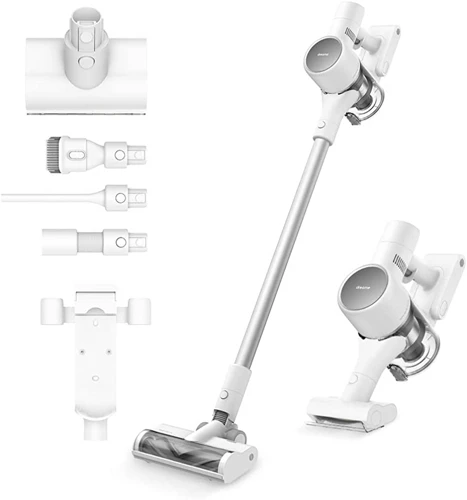
Smart vacuum cleaners have continued to evolve and improve over the years. In recent times, there has been an emphasis on creating innovative noise reduction technologies to make operations quieter. Quieter vacuum cleaners have become very important, especially in homes, as people want to clean their homes without being disturbed by loud noises. In this section, we will discuss some innovative noise reduction technologies available in smart vacuum cleaners.
1. Ultra-quiet Motors
Smart vacuum cleaners with ultra-quiet motors are becoming increasingly popular because they reduce noise levels during operations. These motors use less energy, which reduces the amount of noise produced. Additionally, the motor’s design incorporates several noise reduction techniques, such as sound-dampening materials and innovative cooling systems.
2. Noise-absorbing Materials
Noise-absorbing materials are another innovation being used in smart vacuum cleaners. These materials act as sound barriers and absorb noise during operations, reducing noise output significantly. Some manufacturers use materials like foam padding and other specialized noise-absorbing fibers to reduce noise.
3. Noise-canceling Technology
Noise-canceling technology is also being used in smart vacuum cleaners. This technology involves creating sound waves that cancel out the unwanted noise by inverting it. It requires the use of sophisticated electronics and software to analyze and cancel out the sound wave, ensuring that the user enjoys quiet cleaning.
4. Smart Sensors
Smart vacuum cleaners with sensors can reduce noise levels. The innovation uses sensors which detect the level of dust and debris on the floor, which in turn ensures that the vacuum cleaner only operates at maximum noise levels when necessary. When the sensors detect a lower level of dirt, the power of the vacuum cleaner motor is reduced, which also reduces the noise output.
5. High-efficiency Particulate Air (HEPA) Filters
Some smart vacuum cleaners have HEPA filters that trap dust, allergens, and other particles found in the air. This filtering technology, in addition to noise reduction, makes HEPA filter-equipped vacuum cleaners the best choice for people with allergies.
With the aforementioned innovative noise reduction technologies, you can have a clean home with minimal noise levels. Modern smart vacuum cleaners have gone beyond being mere cleaning tools to provide users with an exceptional cleaning experience. If you want to learn more about noise reduction in smart vacuum cleaners, read our article on noise reduction in smart vacuum cleaners.
1. Ultra-quiet Motors
When it comes to noise reduction in smart vacuum cleaners, the type of motor used is one of the most important factors to consider. Ultra-quiet motors are a popular noise reduction technology that is often used to make vacuum cleaners quieter. These motors are designed to produce less noise compared to traditional vacuum cleaner motors by using advanced sound-dampening technology.
The benefits of ultra-quiet motors
One of the primary benefits of using ultra-quiet motors in smart vacuum cleaners is that they significantly reduce noise levels. Conventional vacuum cleaner motors have been known to produce high levels of noise that can be bothersome to users and their pets. However, with ultra-quiet motors, you can enjoy a peaceful cleaning experience without any noise-related interruptions. Additionally, ultra-quiet motors tend to be more efficient and consume less power, which can lead to lower electricity bills and better battery life.
How do ultra-quiet motors work?
Ultra-quiet motors employ several technologies to suppress noise. One such technology is the use of special materials that absorb sound waves. Additionally, these motors use precision engineering to reduce vibration, which also helps to minimize noise. With these advanced design features, ultra-quiet motors can reduce noise levels by as much as 40% compared to traditional vacuum cleaner motors.
What to look for when buying a vacuum cleaner with ultra-quiet motors
When looking for a vacuum cleaner with an ultra-quiet motor, there are certain features you should consider. First, check the product specifications to ensure that the motor is classified as ultra-quiet or has a low decibel rating. It is important to note that ultra-quiet motors do not necessarily guarantee a silent cleaning experience. Other factors such as the brush roll, suction power, and airflow can also play a role in producing noise. Look for a vacuum cleaner that has multiple noise reduction technologies to ensure the quietest cleaning possible.
Ultra-quiet motors are a game-changer in the vacuum cleaner industry. They offer a quieter and more efficient cleaning experience, making them an ideal choice for people who want a peaceful cleaning experience. When buying a vacuum cleaner with an ultra-quiet motor, it is crucial to look for additional noise reduction technologies to ensure the best possible user experience.
2. Noise-absorbing Materials
One of the most effective methods for reducing noise in smart vacuum cleaners is through the use of noise-absorbing materials. These materials are specifically designed to absorb sound waves, rather than reflecting or transmitting them. By incorporating sound-absorbing materials into the vacuum cleaner construction, noise levels can be significantly reduced.
There are various types of noise-absorbing materials that can be used in vacuum cleaners, including foam, felt, rubber, and even specialized sound-deadening materials. These materials can be placed in various parts of the vacuum cleaner, such as the motor compartment, suction fan, and dustbin. They work to absorb and dampen the sound created by the machine, resulting in a much quieter operation.
In addition to reducing noise, noise-absorbing materials can also help to minimize vibrations, which can contribute to the overall noise level. Vibrations can cause rattling and other noises that are not only annoying but can also damage the vacuum cleaner over time.
Some noise-absorbing materials are also designed to be heat-resistant, ensuring that they not only dampen sound but also prevent overheating. This is particularly important in vacuum cleaners with powerful motors, which generate a lot of heat during operation.
If you’re in the market for a new smart vacuum cleaner, it’s worth considering models that incorporate noise-absorbing materials into their design. Not only will they provide a quieter cleaning experience, but they may also last longer and be less prone to damage from excessive noise and vibration.
3. Noise-canceling Technology
Noise-canceling technology is a highly innovative and effective way of reducing noise in smart vacuum cleaners. This technology uses microphones to detect sounds from the surrounding environment and then produces an opposing sound wave that cancels out the original noise. This works in a very similar way to the popular noise-canceling headphones that many people use for listening to music.
Smart vacuum cleaners that use noise-canceling technology have microphones that are strategically placed around the vacuum’s casing to pick up and analyze the noise level in the surrounding area. The vacuum’s processor then generates a sound wave that is exactly opposite in frequency and amplitude to the original sound. When the two waves combine, they effectively cancel each other out, resulting in a much quieter operating vacuum cleaner.
The implementation of noise-canceling technology is highly effective in reducing noise pollution in homes. This technology allows for quieter cleaning with minimum disruption to the household’s everyday activities. Not only does it make vacuuming quieter and easier on the ears, but it can also improve the quality of life in households with members who are sensitive to loud noises or have hearing difficulties.
Although noise-canceling technology has been around for some time now, it is still considered one of the more high-end technologies in smart vacuum cleaners. Vacuum cleaners that incorporate this technology are usually more expensive than other models. However, for those who prioritize household peace and quiet, it is definitely worth considering.
When shopping for a smart vacuum cleaner with noise-canceling technology, it is important to look for models with adjustable noise levels. This allows you to choose the vacuum’s noise level depending on your preferences and the overall noise level in your home. Additionally, look for models that come with additional noise-reduction features such as sound-absorbing materials or ultra-quiet motors to further enhance the noise-canceling effect.
Noise-canceling technology is an innovative noise reduction technology that is highly effective in reducing noise pollution in homes. Smart vacuum cleaners that incorporate this technology are worth investing in if you prioritize a peaceful and quiet household environment.
4. Smart Sensors
In addition to ultra-quiet motors and noise-absorbing materials, smart vacuum cleaners also use advanced sensor technologies to reduce noise pollution. These sensors are designed to detect and respond to changes in the vacuum’s environment, enabling it to adjust its operations and reduce noise levels accordingly.
For example, some smart vacuums feature dirt sensors that can detect when an area needs more or less cleaning power. When the vacuum detects a particularly dirty patch of carpet or hardwood flooring, it can adjust its suction power to pick up more dirt and dust. Similarly, when the vacuum moves from a dirty area to a clean one, it can lower its power and reduce noise levels.
Other smart sensors found in vacuum cleaners include obstacle detection sensors that enable the vacuum to navigate around furniture and other objects without bumping into them. This eliminates the need for loud collisions and helps the vacuum move efficiently and quietly throughout the home.
Some of the most advanced smart vacuum cleaners on the market today also use laser or infrared sensors to create a map of the home, allowing the vacuum to navigate through rooms with precision and minimize the noise it generates. As the vacuum moves around the home, it constantly updates its map and adjusts its operations to reduce noise and optimize cleaning efficiency.
By using smart sensors in combination with noise-reducing technologies, smart vacuum cleaners are able to clean homes quietly and efficiently, without disrupting the peace and quiet of a household or causing noise-induced stress. When shopping for a smart vacuum, look for models that incorporate these innovative noise reduction technologies to ensure a cleaner, quieter home environment.
5. High-efficiency Particulate Air (HEPA) Filters
Smart vacuum cleaners with high-efficiency particulate air or HEPA filters have revolutionized the vacuum cleaner industry. These innovative filters trap harmful particles such as dust, dirt, and allergens that can exacerbate respiratory issues or allergies. However, HEPA filters also have a role to play in reducing noise levels.
HEPA filters work by trapping microscopic particulates that are harmful to our health. They do this by forcing air through a fine mesh that captures particles as small as 0.3 microns. This results in cleaner air being expelled from the vacuum cleaner, which also translates to a quieter working environment.
A vacuum cleaner with a HEPA filter reduces noise levels by working more efficiently. These filters trap all the dust, dirt, and allergens present on floors and carpets, which leaves the motor to work less hard, generating less noise. Additionally, HEPA filters enable smart vacuum cleaners to clean more efficiently and thoroughly, which means less time spent cleaning and less noise generated during the process.
When searching for a smart vacuum cleaner with HEPA filters, it is important to look at the filter efficiency rating, which is measured as a percentage. The higher the percentage, the more efficient the filter is at trapping harmful particles. Check the maintenance requirements of the filter, as poorly maintained HEPA filters can lead to reduced efficiency, leading to louder operation.
HEPA filters play a significant role in reducing noise levels in smart vacuum cleaners. By trapping harmful particles, they enable the motor to work more efficiently and generate less noise, leading to a quieter environment. When looking to purchase a smart vacuum cleaner, it is important to check the filter efficiency rating and maintenance requirements to ensure optimal performance and noise reduction.
How to Choose a Smart Vacuum Cleaner with Innovative Noise Reduction Technologies
When it comes to choosing a smart vacuum cleaner with innovative noise reduction technologies, there are a few important factors to consider. Here are some tips on how to make the right choice for your household:
1. Read Reviews: Before making a purchase, take the time to read reviews from other customers who have already bought and used the product. Look for reviews that specifically mention the noise reduction technologies and how effective they are in reducing the noise level.
2. Check Decibel Levels: Pay attention to the decibel level of the vacuum cleaner. The lower the decibel level, the quieter the vacuum will be. Look for vacuum cleaners that have a decibel level of 70 dB or lower.
3. Look for Noise Reduction Features: Check the product specifications for any noise reduction features that are included. Look for vacuum cleaners that have noise-absorbing materials, noise-canceling technology, or smart sensors that adjust the suction power based on the level of noise in the room.
In addition to these factors, it’s also important to consider the specific needs of your household. If you have pets or a lot of carpets, look for a vacuum cleaner with a HEPA filter and powerful suction. If you have a larger home, consider a vacuum cleaner with a longer battery life or the ability to recharge quickly.
Choosing a smart vacuum cleaner with innovative noise reduction technologies can make a big difference in the comfort and convenience of your home. Take the time to consider your options and read reviews from other customers to find the best fit for your needs.
1. Read Reviews
When looking for a smart vacuum cleaner with innovative noise reduction technologies, it’s important to do your research and read product reviews. Online reviews from other consumers who have purchased and used the product can give you valuable insight into whether the vacuum cleaner is as quiet as advertised.
But don’t just focus on the number of stars a product has received. Read the reviews carefully to see if any users have commented on the noise level of the vacuum cleaner. Look for reviews that specifically mention the noise level or noise reduction features, and pay attention to the language used. For example, a review that says the vacuum cleaner “whirs loudly” may not be as useful as one that says it “operates quietly.”
Don’t rely solely on reviews from the manufacturer’s website. Look for reviews on third-party websites to get a more balanced perspective. Websites like Amazon and Best Buy often have detailed reviews and ratings from customers who have purchased and used the product. Reading a variety of reviews can give you a better understanding of whether the vacuum cleaner is actually as quiet as advertised or if the noise reduction features are effective.
Consider the source of the reviews and read between the lines. Some reviewers may have different expectations when it comes to noise level, so take their opinions with a grain of salt. Additionally, some reviews may be overly positive or negative, or may even be fake. Look for reviews that provide specific details about the noise level and the vacuum cleaner’s noise reduction features, and try to get a sense of whether the reviewer is being objective.
Reading reviews can help you make an informed decision when it comes to purchasing a smart vacuum cleaner with innovative noise reduction technologies. By taking the time to research and read reviews, you can find a vacuum cleaner that not only cleans your home effectively but also operates quietly, reducing noise pollution in your home.
2. Check Decibel Levels
When shopping for a smart vacuum cleaner with innovative noise reduction technologies, it is important to check the decibel levels. The decibel level is a unit of measurement that indicates the loudness of a sound. The higher the decibel level, the louder the sound.
Why is checking decibel levels important? Well, if you live in an apartment or have thin walls, a loud vacuum cleaner can be a disturbance to your neighbors and possibly even violate noise ordinances. Additionally, if you have pets or small children at home, a loud vacuum cleaner can be frightening and disrupt their sleep or playtime.
Thankfully, many smart vacuum cleaners today come with a low decibel level, ranging anywhere from 50 dB (decibels) to 70 dB. Generally, a vacuum cleaner with a decibel level of 60 dB or lower is considered to be quiet.
How do you check the decibel levels? Before making a purchase, be sure to check the product specifications or reviews for the decibel level. Some manufacturers also include the decibel level in the product name or description, such as the “ECOVACS DEEBOT N79S 60 dB” or the “Shark ION Robot 750 70 dB”.
Another option is to use a sound meter app on your smartphone to test the decibel level of your current vacuum cleaner and compare it to the decibel levels of the models you are considering. This can give you a more accurate idea of the noise level and help you make a decision based on your personal preferences.
Checking the decibel levels is an important step in choosing a smart vacuum cleaner with innovative noise reduction technologies. Be sure to take the time to research and compare models so you can find one that fits your cleaning needs without disturbing your peace and quiet.
3. Look for Noise Reduction Features
When you are looking for a smart vacuum cleaner with innovative noise reduction technologies, it is important to pay attention to the various noise reduction features that are available. Some of these features include adjustable suction power, low noise mode, and intelligent voice control. These technologies can make a significant difference in reducing the amount of noise that is produced by the vacuum cleaner.
One of the most important features to look for when purchasing a smart vacuum cleaner with noise reduction technology is adjustable suction power. This feature allows you to adjust the power of the vacuum cleaner to match the type of flooring you are cleaning. For example, if you are vacuuming a hard floor, you may want to decrease the suction power to reduce the noise level. On the other hand, when vacuuming carpets or rugs, you may need higher suction power to pick up debris.
Low noise mode is another important feature to look for in a smart vacuum cleaner. This mode reduces the vacuum’s noise level significantly, which is especially helpful when you want to use the vacuum at night or when someone in the house is sleeping. The low noise mode usually decreases the suction power, which may not be suitable for deep cleaning, but is a great option for quick cleanups.
Intelligent voice control technology is another innovative noise reduction feature that has become popular in smart vacuum cleaners. With voice control, you can operate the vacuum cleaner with your voice, eliminating the need to press buttons. This can be especially useful when your hands are full or when you are unable to use your hands. Some smart vacuum cleaners allow you to schedule automatic cleaning sessions with voice controls, so you can simply give a voice command and leave the vacuum to do its job.
When you are looking for a smart vacuum cleaner with innovative noise reduction technologies, you should look for features such as adjustable suction power, low noise mode, and intelligent voice control. These noise-reducing features can help you create a quieter and more comfortable environment in your home while still keeping your floors dust and debris free. So, take the time to explore your options and choose the smart vacuum cleaner that best suits your specific cleaning needs.
Conclusion
In conclusion, the availability of innovative noise reduction technologies in smart vacuum cleaners has been a game-changer in the cleaning industry. With the majority of people spending more time at home due to the pandemic, a quieter environment has become more important than ever. Smart vacuum cleaner manufacturers have heard the cries of consumers by introducing noise-absorbing materials, ultra-quiet motors, noise-canceling technology, smart sensors, and HEPA filters in their products.
These noise reduction technologies have several benefits for homeowners, including reducing noise pollution, creating a more peaceful living environment, and helping to prevent hearing damage. Furthermore, they also allow users to clean their homes at night without the fear of disturbing their family members or neighbors.
When choosing a smart vacuum cleaner with innovative noise reduction technologies, it’s advisable to read reviews before making a purchase. This helps to ensure that the selected vacuum cleaner is high-quality and has the desired noise reduction features. Consumers should also check the decibel levels of the vacuum cleaner and look for features such as noise-absorbing materials, noise-canceling technology, and smart sensors.
In conclusion, a smart vacuum cleaner with noise reduction technologies is a perfect investment for anyone who wants to keep their homes tidy and free of noise pollution. It provides users with a more peaceful home environment and helps to prevent hearing damage. With so many models available today, it’s essential to choose wisely by taking into consideration the features that you and your family need.
Frequently Asked Questions
What is the average decibel level of a regular vacuum cleaner?
The average decibel level of a regular vacuum cleaner is around 70-75 decibels, which can be quite loud and disruptive to your household.
Are ultra-quiet motors more expensive in smart vacuum cleaners?
Yes, ultra-quiet motors tend to be more expensive in smart vacuum cleaners, as they often require more advanced technology and materials to dampen the noise.
What are some common noise-absorbing materials used in smart vacuum cleaners?
Common noise-absorbing materials used in smart vacuum cleaners include foam padding, rubber and silicone gaskets, and acoustic insulation.
How does noise-canceling technology work in smart vacuum cleaners?
Noise-canceling technology in smart vacuum cleaners works by using microphones and speakers to detect and cancel out noise frequencies before they reach your ears. This technology is often seen in high-end headphones and speakers as well.
What are some examples of smart sensors in noise-reducing vacuum cleaners?
Some examples of smart sensors in noise-reducing vacuum cleaners include digital optical sensors that can detect and map out your home, as well as cliff sensors that prevent the vacuum from falling down stairs or off elevated surfaces.
What is the benefit of HEPA filters in smart vacuum cleaners with noise reduction technologies?
In addition to removing allergens and other particles from the air, HEPA filters in smart vacuum cleaners with noise reduction technologies can also help to reduce noise by creating a more efficient airflow and reducing drag on the motor.
Can you use a smart vacuum cleaner with noise reduction technologies at night without disturbing your family’s sleep?
Yes, many smart vacuum cleaners with noise reduction technologies are specifically designed to be used at night without disturbing your family’s sleep. Look for models with “night mode” or similar features that reduce noise output even further.
How do I know if a smart vacuum cleaner has a high enough suction power to clean my floors?
Check the vacuum cleaner’s specifications for its “air watts” or suction power, which will give you an idea of how powerful the motor is. Look for models with at least 150-200 air watts for effective cleaning.
Can I automate a smart vacuum cleaner with noise reduction technologies?
Yes, many smart vacuum cleaners with noise reduction technologies can be automated using remote controls or smartphone apps. Some models can even be controlled with voice commands through Amazon Alexa or Google Assistant.
Is it worth investing in a smart vacuum cleaner with noise reduction technologies?
If you value a quiet and peaceful home, investing in a smart vacuum cleaner with noise reduction technologies can be well worth the investment. Not only will it make cleaning more pleasant and stress-free, it can also improve your overall quality of life.
